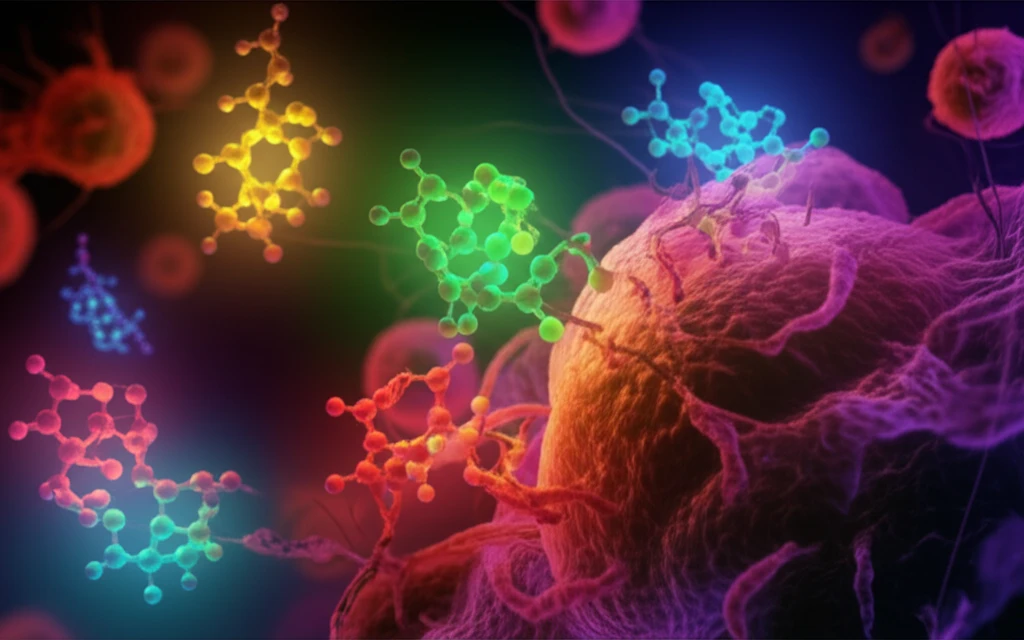
Can Cryptotanshinone, a Compound from Traditional Chinese Medicine, Help Fight Colon Cancer?
"New research explores how cryptotanshinone inhibits colon cancer growth and spread by targeting key pathways."
Colorectal cancer remains a significant health challenge worldwide, necessitating the development of more effective treatments. Current therapies often have limited success and can cause severe side effects, underscoring the urgent need for new approaches to combat this disease.
Recent research has focused on the potential of natural compounds to fight cancer. Tumor angiogenesis (the formation of new blood vessels) and inflammation are critical in cancer progression, making them attractive targets for therapeutic intervention. Researchers are exploring agents that can disrupt these processes, potentially slowing or stopping cancer's growth and spread.
A new study highlights the potential of cryptotanshinone (CPT), a compound derived from the traditional Chinese herb Salvia miltiorrhiza (Danshen), in colon cancer treatment. This research investigates CPT's ability to inhibit colon cancer cell growth and spread by modulating key pathways involved in inflammation, angiogenesis, and tumor development. Let's dive into the groundbreaking findings.
How Cryptotanshinone Targets Colon Cancer

The study published in International Immunopharmacology investigated the effects of CPT on CT26 colon cancer cells, both in vitro (in the lab) and in vivo (in living organisms). The results showed that CPT significantly suppressed the proliferation and growth of these cancer cells. This is a crucial first step, as slowing down the growth of cancer cells can improve treatment outcomes and overall survival rates.
- Decreasing the protein expression of matrix metalloproteinase-2 (MMP-2) and MMP-9, enzymes that break down the extracellular matrix, allowing cancer cells to invade surrounding tissues.
- Increasing the expression of tissue inhibitor of metallopeptidase-1 (TIMP-1) and TIMP-2, proteins that inhibit MMPs, thus preventing cancer cell invasion.
The Promising Future of Cryptotanshinone in Cancer Treatment
This study provides compelling evidence for the potential of cryptotanshinone as a therapeutic agent against colon cancer. By targeting multiple key pathways involved in tumor growth, invasion, inflammation, and angiogenesis, CPT offers a multifaceted approach to combating this disease. While further research is needed to fully understand its mechanisms and optimize its use in clinical settings, CPT holds great promise as a natural compound that could revolutionize colon cancer treatment and improve patient outcomes. Talk to your healthcare provider about this and other treatment options.
